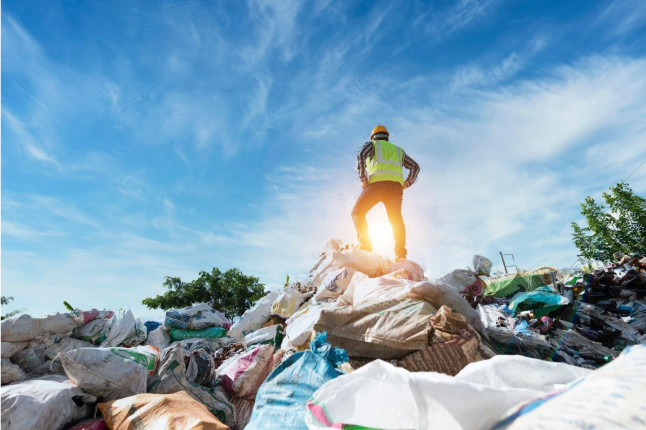The push towards a more sustainable future has brought about innovative changes in how we manage waste, heralding a green revolution in waste management practices.
Also, this movement is not just about reducing waste; it’s about rethinking our approach to resources and how we can live in harmony with the planet. By adopting more sustainable waste management practices, we contribute to a healthier planet for future generations.
Embracing the Three Rs
At the heart of the green revolution in waste management are the principles of Reduce, Reuse, and Recycle.
These guiding principles help individuals and businesses alike to minimize their environmental impact by making more conscious decisions about their waste.
Reducing what we consume means less waste is generated in the first place, while reusing items extends their life and reduces the need for new products.
Recycling turns waste materials into new products, closing the loop and preventing valuable resources from ending up in landfills.
Innovative Recycling and Recovery
Recycling has evolved beyond just paper, glass, and cans. Technological advancements now allow for the recycling of complex materials, including electronics and certain plastics, which were once considered challenging to process.
Moreover, recovery practices, such as energy-from-waste technologies, convert waste into electricity, heat, and fuel, showcasing how waste can be a powerful resource when managed correctly.
One example of embracing sustainable waste management practices is the implementation of Worcester skip hire services that focus on recycling and responsible disposal of waste. These services ensure that waste is sorted, with as much as possible being diverted from landfills towards more sustainable processing methods.
The Role of Technology in Waste Management
The adoption of new technologies plays a pivotal role in transforming waste management practices.
From smart bins that signal when they’re full, to waste sorting robots powered by artificial intelligence, technology is making waste management more efficient and less labour-intensive. These innovations not only improve the effectiveness of recycling programs but also contribute to the overall sustainability of waste management by reducing emissions associated with waste collection and processing.
Community Involvement and Education
A sustainable approach to waste management requires the participation of the entire community. Public education campaigns play a crucial role in raising awareness about the importance of waste reduction and recycling.
Schools, local councils, and community groups can foster a culture of sustainability by organising workshops, clean-up events, and recycling initiatives. By engaging the community, we ensure that sustainable waste management practices become a shared responsibility and a part of everyday life.
The green revolution in waste management represents a significant shift towards a more sustainable and responsible approach to handling our waste.
By integrating the principles of reduce, reuse, and recycle into our daily lives, leveraging technology, and fostering community involvement, we can make a substantial impact on the health of our planet.
Sustainable waste management is not just an environmental imperative; it’s a practical way to conserve resources, reduce pollution, and create a better world for future generations.
Let’s embrace these practices and work together towards a greener, more sustainable future.

